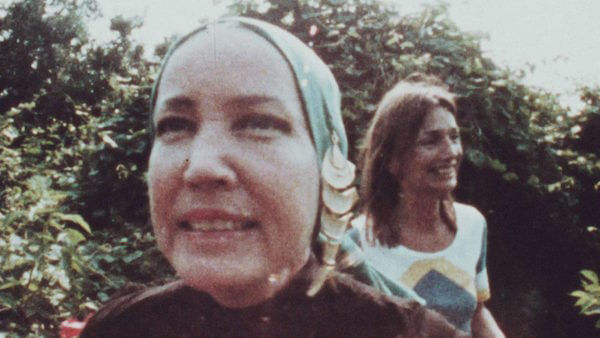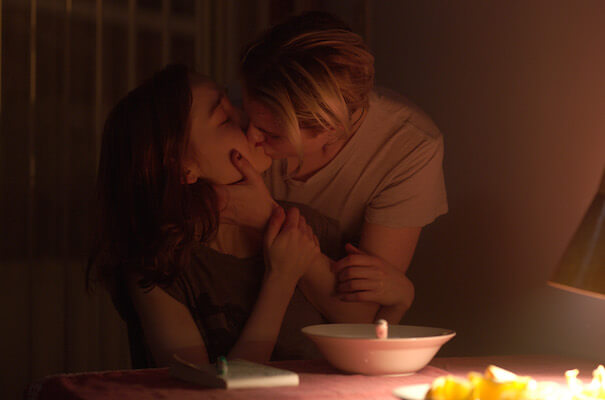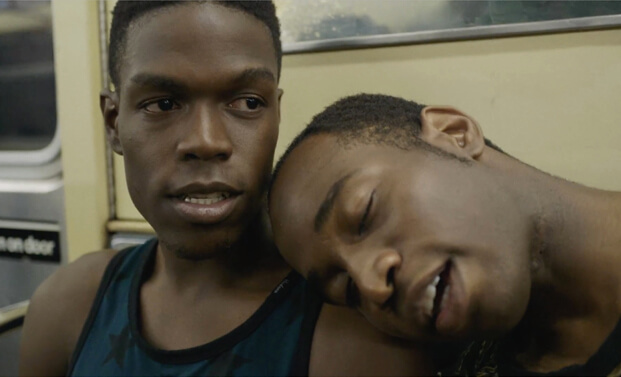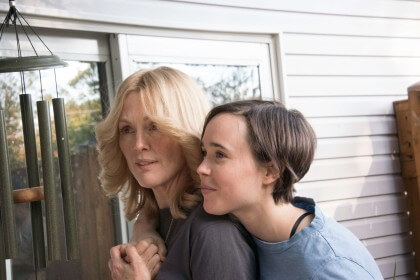Ellen Page and Evan Rachel Wood in Patricia Rozema’s “Into the Forest,” adapted from a novel by Jean Hegland. | A24
Lesbian writer and director Patricia Rozema’s “Into the Forest” is an intense apocalyptic drama adapted from Jean Hegland’s celebrated novel. In the near future, two sisters, Nell (Ellen Page) and Eva (Evan Rachel Wood), are forced to survive during a lengthy power outage while holed up in their family home in the woods.
The film is an atmospheric feminist drama, “a realistic tale and a fable,” the director said in a recent phone interview, duly noting the contradiction inherent in that statement.
Rozema rose to prominence with her quirky comedy “I Heard the Mermaids Singing,” helmed the lesbian classic “When Night is Falling,” and directed the excellent adaptation of Jane Austen’ “Mansfield Park.” She emphasizes women coming into their own in her films, but she insisted, “I’m not that interested in empowerment. I feel it’s a bit of a 101 approach to character. Fiction is more about connection than empowerment.”
Patricia Rozema’s “Into the Forest” stars Ellen Page and Evan Rachel Wood
“Into the Forest” shows how the young women eke out their lives on their own terms. Situations, from conserving gas and food and the slow collapse of their house to various encounters with men, test their resilience.
Rozema spoke with Gay City News about her potent sci-fi survivalist film.
GARY M. KRAMER: What appealed to you about this novel that made you want to adapt it? It’s a new genre for you.
PATRICIA ROZEMA: I was attracted to it because it was so different. I need to keep myself awake and alive. Control of tone is one of the most exciting parts of the craft of filmmaking. My goal was to have familiar comfort and warmth and ease, and then take you into a bleak place. The point of the film is: What is it saying? Why am I telling this story now? The genre was exciting — to play with that level of suspense [and] make it raw and elegant at the same time. The point was to tell a cautionary tale, a warning of how close we are to the brink and what are we relying on — each other. And a bit of a fantasy. I like what the book said, and how it said it. I selected the second half of the novel. How the world fell apart wasn’t as interesting to me.
GMK: There is a line in the film that “crisis reveals character.” How do you think you would cope in a similar no power situation?
PR: I had not thought about that at all! I was in a café recently, and a car ran into the front window, inches away from where I was. My first reaction — and I was proud of this — was that I ran around to make sure everyone was okay. I then found the driver and recorded the driver. So I would record things with my phone until it died, and then write it all down. My lot in life is to make a record. We have romantic relationships with our phones. They would be less than useless very quickly.
GMK: Nell is a practical, headstrong young woman, whereas Eva is ruled by her heart. Can you talk about the dynamic between these two characters and about working with Page and Wood on their characters?
PR: Evan is by nature very verbal and social and very expressive, but her character was mostly speaking through her body. Through the course of the film that evolves a bit, and it’s interesting how she switches. I thought of them as heart and head. Nell is rational. Eva is annoying at times the way siblings can be with one another. We presented them as entitled and childish kids from a refined family. The actresses are similar in character — they are both strong women — and it was thrilling to direct them.
GMK: The house and the forest function as both symbols and characters. Can you talk about the metaphors in “Into the Forest?”
PR: The house is standing in for civilization — beautiful and refined construction, but it’s crumbling quickly. There is reason to believe it is a danger; the same way that we are choking ourselves to death on this planet. What we call civilization is doing damage to our host. That’s the big broad theory. The natural world is a haven, but it’s not completely safe. I did not want a nature equals good, civilization equals bad dialectic. It’s not that simple. Nature is full of danger, too. It’s without moral comment.
GMK: The film has a theme about safety, not just a safe space, but also emotional security. What are your thoughts on safety?
PR: I am a little bit insane in that I kind of believe I’m going to be fine no matter what. I don’t have much fear. People are afraid to walk with me because I walk into traffic. I’m not a good example for the need for physical safety. Emotional safety, though — once someone lies to me, I can’t invest in them.
GMK: I understand there was a sex scene between the sisters that was cut from the film. What decisions were made to film it but cut it?
PR: In the book there is a sex scene between the two girls, and we did shoot it. We realized if we took it out, nothing changed. So isn’t that the definition of gratuitous? The idea behind it was when society breaks down, all the taboos disintegrate. It was a beautiful scene — loving and hot — but the fact that they were sisters took any kind of joy out of it.
INTO THE FOREST | Directed by Patricia Rozema | A24 | Opens Jul. 29 | Cinema Village, 22 E. 12th St. | cinemavillage.com



































